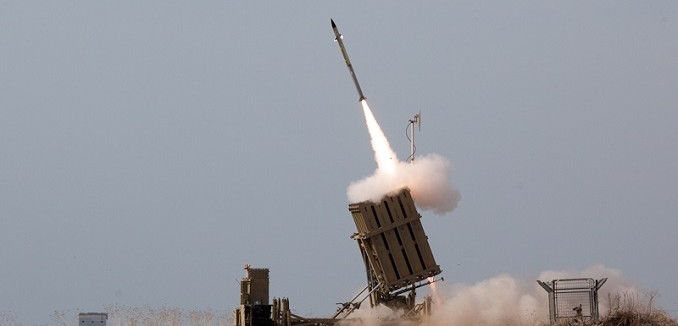Four Grad rockets were fired from southern Lebanon at Israel this morning, triggering renewed concerns that regional instability was spilling over into Israel. One of the rockets was intercepted by Israel’s Iron Dome system. The Lebanese military quickly restricted access to the launch site, which is inside an area heavily patrolled by personnel from the Iran-backed terror group Hezbollah and their Lebanese allies from the Amal Movement.
The IDF preliminarily linked the attack to a “global jihad” group, which in the context of Lebanon would likely mean the Abdullah Azzam Brigades (AAB). AAB is an Al Qaeda offshoot designated as a Foreign Terrorist Organization by the U.S. State Department. The group has launched attacks against both Israel and the Shiite terror group Hezbollah, and issued a claim of responsibility for today’s attack as well [Arabic].
If confirmed, the scenario would indicate that Sunni jihad groups have established a sufficient presence in areas controlled by Hezbollah to launch multiple rockets, and would indicate a general deterioration in Lebanon’s security. Jihadist groups had already taken responsibility for two car bombs that recently ripped through Hezbollah-dominated areas of Beirut, acts which have forced Hezbollah to militarize parts of Lebanon’s capital.
Some US-based analysts have alternatively suggested that it’s unlikely a Sunni extremist group would have been able to gain sufficient access to Hezbollah-controlled territories to launch today’s attack. Instead, they suggest, Hezbollah forces launched the rockets themselves. Hezbollah is known to possess tens of thousands of rockets and missiles pointed at Israel, and has in recent days threatened to saturation bomb Israeli population centers.
Under this scenario, in addition to straightforwardly attacking Israel, Hezbollah may have designed the provocation to resonate domestically. Foundation for Defense of Democracies fellow Tony Badran suggested earlier this week that the Shiite group may try to generate pretexts for cracking down on Sunnis in Lebanon:
The message Hezbollah is sending by linking Prince Bandar, Hariri, and the Sunni “foster environment” to the bombing in Al-Roueiss is clear. As my NOW Arabic colleague, Elie Fawaz, explained it: “The Sunnis in Lebanon will be held hostage until the bombings in Dahiyeh stop.” The implicit threat that car bombs might hit non-Shiite areas aims to establish, in Fawaz’s words, a “balance of terrorism” equation…
The Party of God is signaling that it is willing to go all the way, not just in Syria, but also in Lebanon. Its message after Al-Roueiss is that it will continue the war in Syria, and will move to secure areas straddling the eastern border. And if the bombings in Shiite towns and neighborhoods don’t stop, and Hezbollah and its allies in the LAF and security apparatuses are not given control over key Sunni areas, Lebanon’s Sunnis will pay the price.
If Hezbollah was involved in today’s launch, it would indicate that the group is ramping up for a widespread internal Lebanese conflict. The regional cascade effects of the campaign would be difficult to predict, but would at a minimum complicate efforts to contain spillover from the Syrian conflict.
[Photo: Matanya / Wiki Commons]




